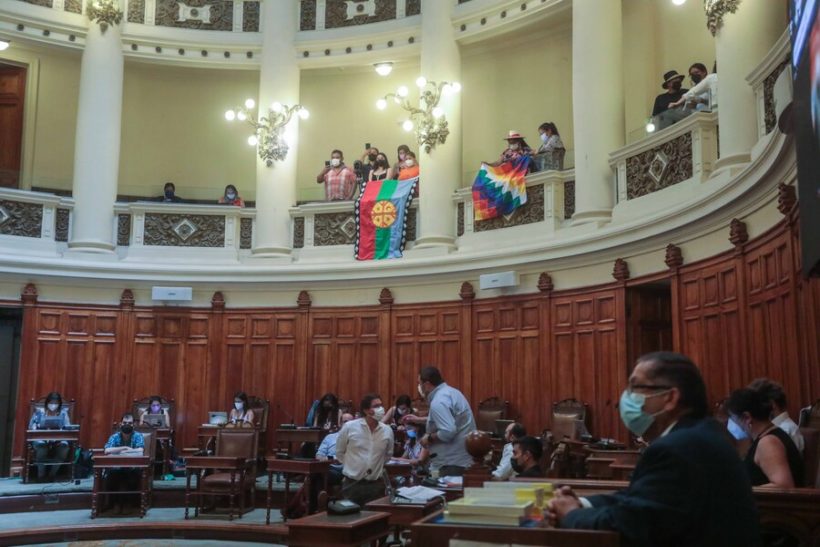This Friday the Fundamental Rights Commission of the Constitutional Convention approved a proposal for a norm that proposes to restore and reintegrate lands to native peoples.
The initiative was voted in favour by 23 constituents and rejected by 10 of them. Among the latter were the representatives of Vamos por Chile en bloc, as well as Gaspar Domínguez, of Independientes No Neutrales, and Luis Barceló and Felipe Harboe, of the Lista del Apruebo.
“The territorial restitution of indigenous peoples is a cause of public utility; therefore, a possible expropriation could proceed in order to materialise this demand,” Rosa Catrileo, a constituent of seats reserved for the Mapuche people, told Radio Biobío.
For his part, Luis Jiménez, representative of the Aymara people, said that “the Inter-American Court has indicated that the fairest and most useful mechanism is expropriation and not sale and purchase through private mechanisms”.
The initiative must now be debated in particular, at which point it may undergo modifications. Subsequently, the text will be voted on by the plenary of the constituent body, where it requires two-thirds support.
Land restitution mechanism
According to the initiative, the process would be carried out through the creation of a body called the “Plurinational Commission of Cadastre, Demarcation and Indigenous Land Titling”, which would receive the communities’ claims.
Based on this, the new institution’s purpose will be to “draw up a cadastre and state of the indigenous lands, territories, maritorio, natural assets and waters for each indigenous people and nation, which are in the possession or domain of third parties, private individuals or the Treasury”.
The commission should use this data to draw up a “concrete plan for demarcation, registration or titling and/or restitution, as appropriate” and would be made up of experts appointed by the executive branch and representatives of the indigenous peoples designated by their own procedures.
For claims and actions during the process, a “Special Tribunal for Indigenous Lands, Territories and Ancestral Waters” will be created, which will be in charge of monitoring compliance with the provisions of the Constitution and will be made up of experts appointed by the state and the indigenous peoples.
“The Tribunal (…) shall promote all necessary measures to comply with the duty of restitution. Recourse may be had to expropriation”, a mechanism that could be subsidised by “other forms of reparation or complementary rehabilitation”, preferably land or natural assets of equal size.






